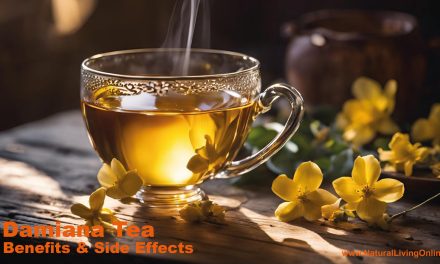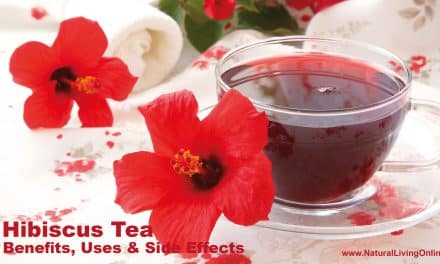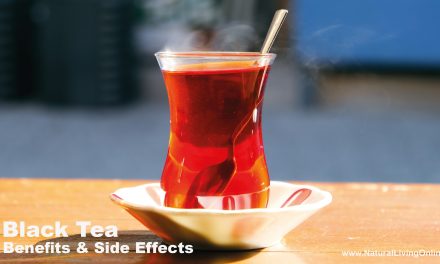Lavender tea, made from dried lavender flowers, is famous for its calming scent and taste. Many people drink it to improve their mood, ease anxiety, or help with sleep. Lavender tea is known for its relaxing effects, making it a popular choice for those looking to unwind.
Beyond its calming properties, lavender tea may offer several health benefits. It can potentially aid with digestion, reduce headaches, and even alleviate menstrual cramps. There are also some potential side effects like skin irritation or nausea if consumed in excess.
While lavender tea is generally safe, it’s essential to enjoy it in moderation. Overconsumption may lead to headaches and appetite changes. Always consult a healthcare provider if you’re unsure about adding a new herbal tea to your routine. Learn how to maximize its health benefits while minimizing risks.

Key Takeaways
- Lavender tea offers relaxing properties and potential health benefits.
- Moderate consumption is key to avoiding side effects.
- Consult a healthcare provider before making lavender tea a part of your routine.
Origins and Characteristics of Lavender
Lavender, known scientifically as Lavandula, is native to the Mediterranean region. It thrives in areas with lots of sunlight and well-drained soil.
The lavender plant belongs to the genus Lavandula and is part of the mint family. Its most notable feature is its vibrant purple flowers, which bloom in dense clusters.
There are several types of lavender, but English Lavender is one of the most commonly cultivated varieties. This type is well-known for its strong fragrance and essential oil production.
Lavender plants can grow to about 2-3 feet tall and have narrow, gray-green leaves. The flowers are often used in aromatherapy, cosmetics, and herbal teas due to their calming scent.
The lavender flower has been used for centuries in traditional medicine. Its essential oils have properties that are believed to aid in relaxation, improve mood, and relieve headaches.
Characteristics of Lavender:
- Height: 2-3 feet
- Leaves: Narrow, gray-green
- Flowers: Dense clusters of vibrant purple
- Common Varieties: English Lavender
Lavender’s cultivation spread from the Mediterranean to other parts of the world, including Europe and the Americas. Today, it is grown in gardens and farms globally for its beauty and beneficial properties.
Health Benefits of Lavender Tea

Lavender tea offers a range of benefits that can enhance your overall well-being. This herbal tea has properties that help in promoting relaxation, providing anti-inflammatory benefits, supporting digestive health, alleviating pain, and improving mental health.
Promoting Relaxation and Sleep Quality
Lavender tea is widely known for its calming effect, making it an ideal bedtime tea. Drinking lavender tea can help improve sleep quality due to its properties that help relax the body and mind. Many people drink it to help combat insomnia and promote relaxation before bedtime. By reducing stress hormones, it prepares the body for restful sleep.
Providing Anti-inflammatory Properties
One of the health benefits of lavender tea is its anti-inflammatory properties. These properties can help reduce muscle spasms and pain. Whether you experience menstrual cramps or muscle soreness, a cup of lavender tea might provide relief. The tea helps to soothe the body and ease inflammation, making it a valuable addition to your daily routine.
Supporting Digestive Health
Lavender tea is beneficial for the digestive system. It can help reduce indigestion and nausea by calming the stomach muscles and promoting smoother digestion. This herbal tea is part of natural remedies that people often use to support digestive health without relying on over-the-counter medicine. Its calming effect on the muscles also aids in alleviating bloating and gas.
Alleviating Pain and Headaches
Drinking lavender tea may help reduce headache symptoms. The antioxidants and anti-inflammatory agents in lavender tea contribute to decreasing headache severity. It also helps to increase blood circulation, ensuring that the brain receives enough oxygen, which can alleviate headaches effectively. This makes lavender tea a natural option for those seeking pain relief.
Mental Health Improvements
Lavender tea has a positive impact on mental health. The tea’s calming properties can help improve mood and reduce feelings of anxiety and stress. By drinking this tea, individuals may find relief from daily stressors. It is also known to improve mood disorders, making it a supportive beverage for mental well-being.
Culinary and Aromatic Uses of Lavender

Lavender has many uses that extend beyond its well-known soothing scent. It can be incorporated in cooking and beverages, as well as used in aromatherapy for its calming effects.
Lavender in Tea Blends and Cooking
Lavender is a versatile ingredient in the culinary world, particularly in tea blends and cooking. Lavender tea, often combined with chamomile or honey, is known for its calming properties. The distinctive flavor of lavender buds can be found in a variety of tea blends, providing a floral note that pairs well with other herbs.
In cooking, lavender is used to add a unique taste. It can be incorporated into baked goods like cookies and pastries, or used as a seasoning in savory dishes. Lavender is particularly popular in Mediterranean cuisine. A small amount of lavender extract can bring a fragrant twist to sauces, dressings, and marinades.
Aromatherapy and Essential Oils
Lavender essential oil is a staple in aromatherapy due to its calming scent. It is often used in diffusers to create a relaxing atmosphere. The oil can also be mixed with carrier oils like jojoba oil for massages, enhancing the relaxation experience.
Lavender soap and candles are common products that utilize lavender’s soothing properties. Its scent is said to reduce stress and anxiety. Lavender essential oil can also be added to bathwater for a calming soak, or used in homemade skin care products. Its versatility makes it a favorite for those seeking natural remedies and relaxation techniques.
Concluding Thoughts on Lavender Tea

Lavender tea offers a range of potential health benefits. Many people drink it to help reduce stress, anxiety, and depression. The tea’s calming effects are one of its major appeals.
Some enjoy lavender tea for its ability to promote better sleep. It may help relax the body and mind, making it a popular choice before bedtime.
Mood improvement is another possible benefit. Drinking a warm cup of lavender tea can be a soothing experience, potentially lifting spirits and easing the mind.
Lavender tea may also provide relief from menstrual cramps, reduce inflammation, and help with digestion by easing stomach upset and nausea. The tea’s antispasmodic properties are thought to help with these issues.
For those interested in using essential oils, lavender tea can be a mild alternative, offering similar aromatic benefits in a gentle form.
While there are many positive accounts of lavender tea benefits, it’s important to remember that research is limited. People should consider consulting a healthcare provider if they have any concerns or health conditions.
Frequently Asked Questions
What are the potential health benefits of drinking lavender tea for the skin?
Drinking lavender tea may help improve skin health. Its anti-inflammatory properties may reduce redness and irritation. Additionally, antioxidants in the tea might protect against free radicals, promoting a healthier complexion.
Can consuming lavender tea aid in weight loss, and if so, how?
Lavender tea may support weight loss efforts by reducing stress, which can decrease emotional eating. It also helps improve digestion, potentially aiding in better nutrient absorption and metabolism.
Are there any side effects associated with drinking lavender tea on a daily basis?
Daily consumption of lavender tea is generally safe, but some may experience mild headaches or palpitations. Allergic reactions are rare but possible. Always consult a healthcare provider if you notice adverse effects.
How does lavender tea impact hair health and what are the benefits?
The antioxidants in lavender tea may support hair health by promoting a healthy scalp and reducing dandruff. Its calming scent can also help reduce stress, which is linked to hair loss.
Could lavender tea influence heart health or blood pressure?
Lavender tea may help improve heart health by reducing stress hormones and promoting better blood circulation. These effects can potentially lower blood pressure and support overall cardiovascular health.
What are the overall effects of lavender tea on the body?
Lavender tea has a calming effect, which can help with better sleep and reduced anxiety. It might also aid in digestion, relieve muscle spasms, and support immune function through its antioxidant properties.
Can I add lavender essential oil to my tea?
Even though adding a drop or two to your tea, or any other drink for that matter, won’t be harmful but to make tea it is advised to used dried buds and brew fresh tea. For ingesting any essential oil, you should consult your doctor first.
References:
The effect of lavender herbal tea on the anxiety and depression of the elderly
Lavender and the Nervous System
This website does not provide medical advice.
All information provided on this website, and on associated social media networks, including but not limited to texts, images, and numbers are for general information purpose only. It is not intended as medical advice and it does not include all possible precautions, side effects, or interactions that may occur. Neither NaturalLivingOnline.com nor its author/founder take responsibility for how you use this information. Statements contained on NaturalLivingOnline.com have not been evaluated by the FDA. You should conduct thorough research via multiple sources and consult your physician or qualified doctor before using any essential oil or herbal remedy. Information on NaturalLivingOnline.com must not be relied upon for medical, legal, financial or other decisions.













